Tools Required
SA9216NE OTC Tool
Removal Procedure
Caution: Protect yourself by wearing safety glasses, earplugs, a respirator, gloves,
and safety shoes while performing work on the vehicle.
Important: When applying cooling coil coating (P/N 12346390),
use a National Institute of Occupational Safety and Health (NIOSH) approved acid gas/organic
vapor respirator with chlorine dioxide cartridges (3M™ P/N 5103-small,
5203-medium, 5303-large), which are to be used with a pre-filter (P/N 5010)
and retainer (P/N 501), or equivalents.
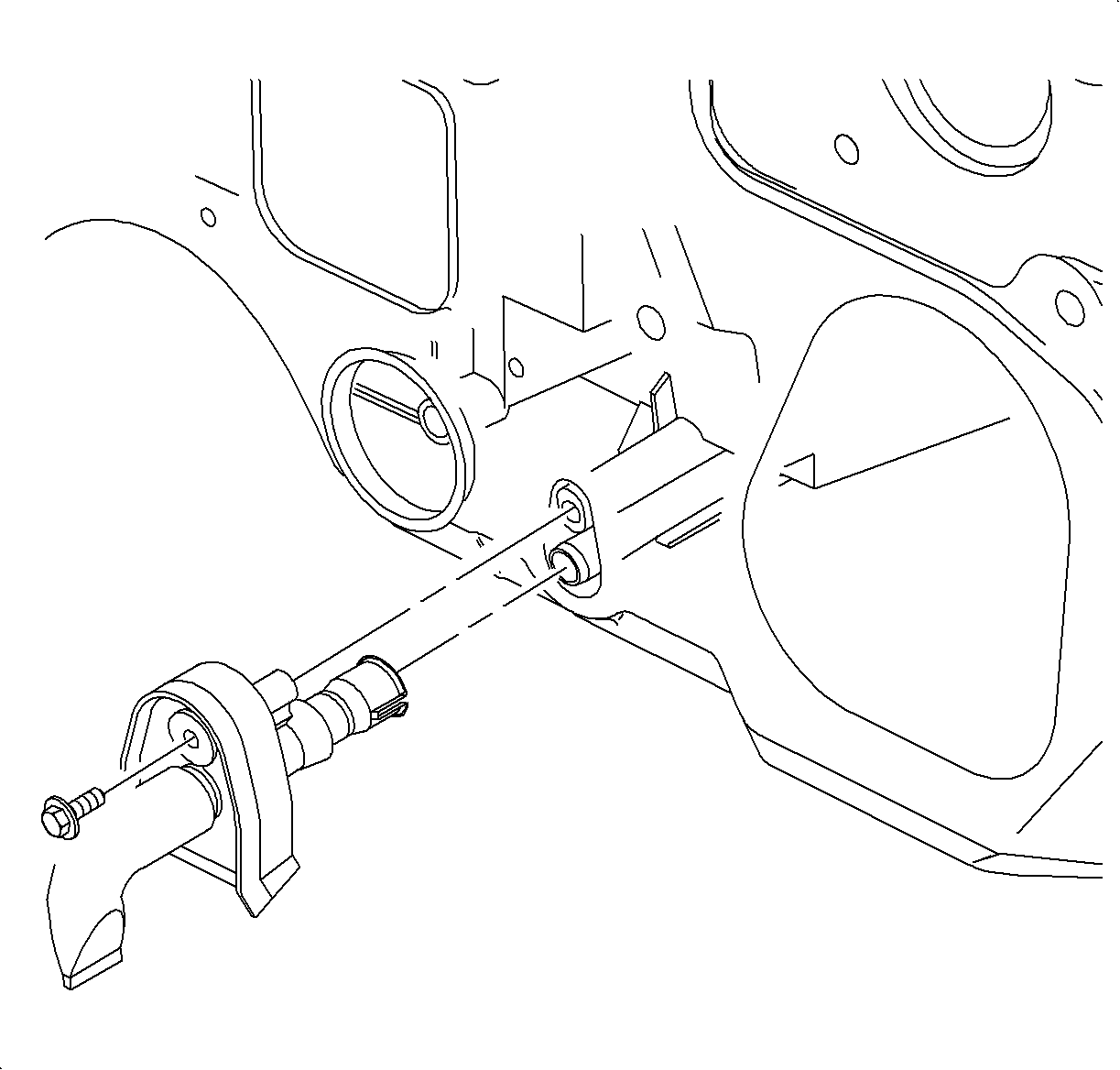
- Dry the evaporator by performing the following steps:
| 1.1. | Adjust the temperature to full hot. |
| 1.2. | Adjust the mode to heater only. |
| 1.4. | Ensure the A/C button is OFF. |
| 1.5. | Close all doors and windows. |
| 1.6. | Start the engine and allow the engine to reach operating temperature. |
| 1.7. | Once the engine reaches operating temperature, allow the blower motor
to operate on HI blower for 5 minutes. |
Caution: Refer to Vehicle Lifting Caution in the Preface section.
- Raise the vehicle on a hoist.
- Check the HVAC module drain for blockage. If necessary, clear the drain
hole with a soft blunt tool such as the eraser end of a pencil.
- Lower the vehicle from the hoist.
- Place a drain pan directly below the HVAC drain to collect disinfectant
or cooling coil coating and rinse the water runoff.
- Open all doors and windows in the vehicle and position the pedestal fan
so that it provides cross ventilation through the vehicle during the cleaning/coating
procedure.
- Cover the interior of the vehicle to protect it from spray.
Caution: The following procedure should only be performed on a cold vehicle.
It has been demonstrated that irritating vapors will be formed in the engine compartment
if the cooling coil coating coming out of the drain outlet contacts hot engine components.
Cooling coil coating can cause substantial, but temporary eye injury. Do not get cooling
coil coating in eyes or on clothing. Wash thoroughly with soap and water after handling.
First aid: if cooling coil coating gets into eyes, hold eyelids open and flush
with a steady, gentle stream of water for 15 minutes. Obtain medical attention if
irritation persists.
- Allow the vehicle to cool down before performing the cooling coil coating procedure.
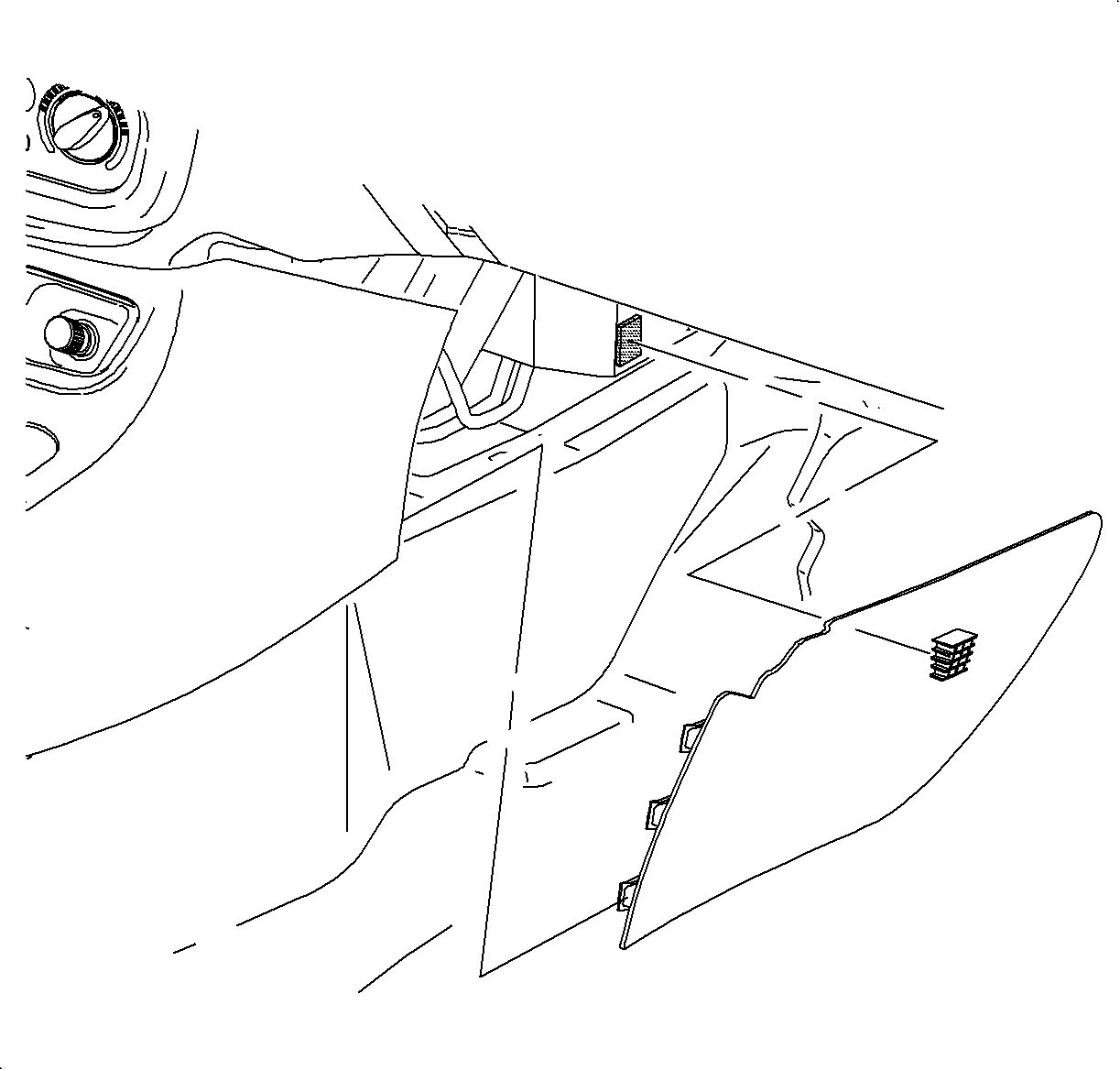
- Remove the right side console extension.
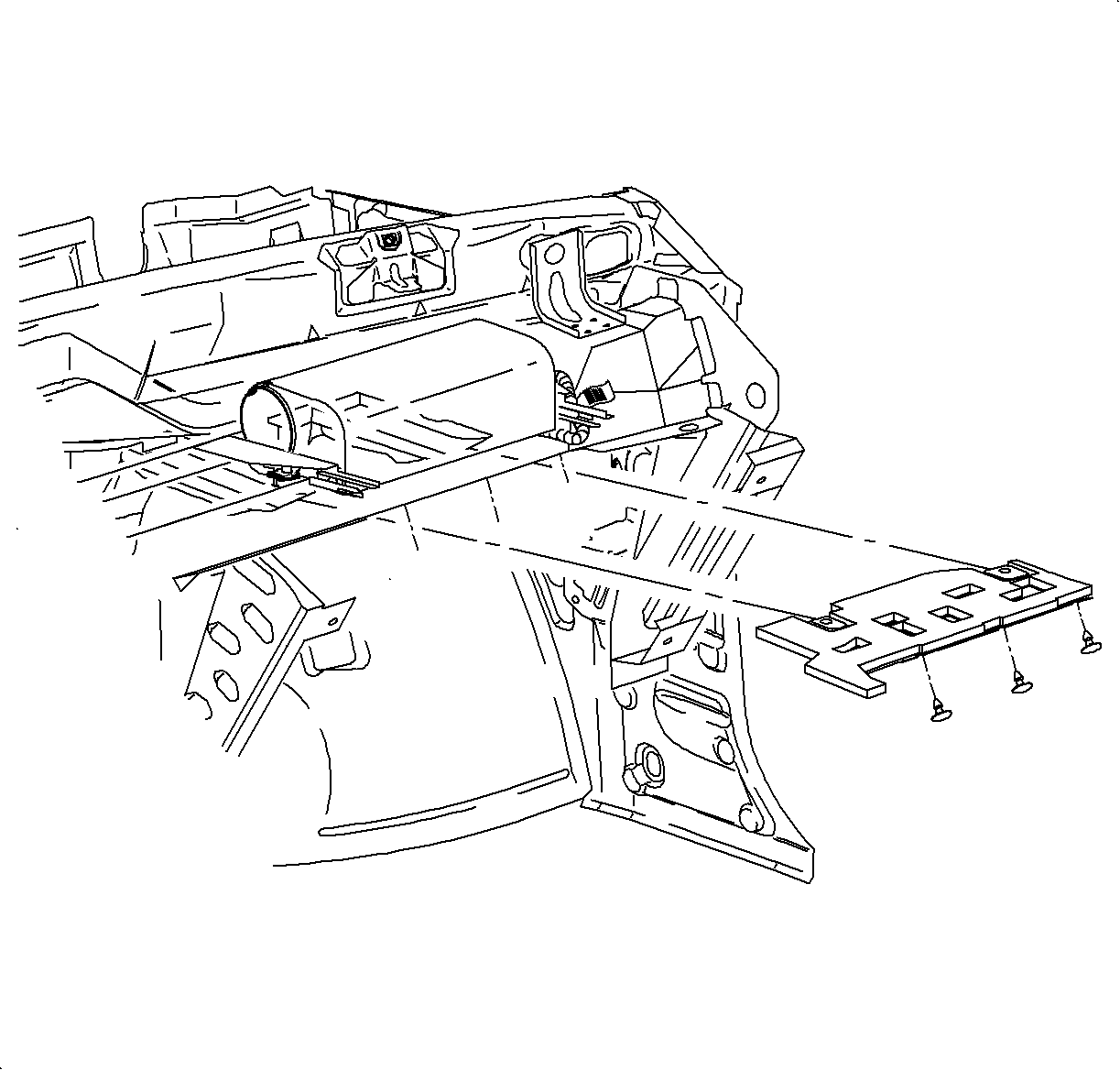
- Remove the right side I/P lower dash insulator retainers.
- Pull the insulator rearward to detach the insulator from the forward insulator
support.
- Remove the insulator support from the front of the dash studs by pulling
rearward.
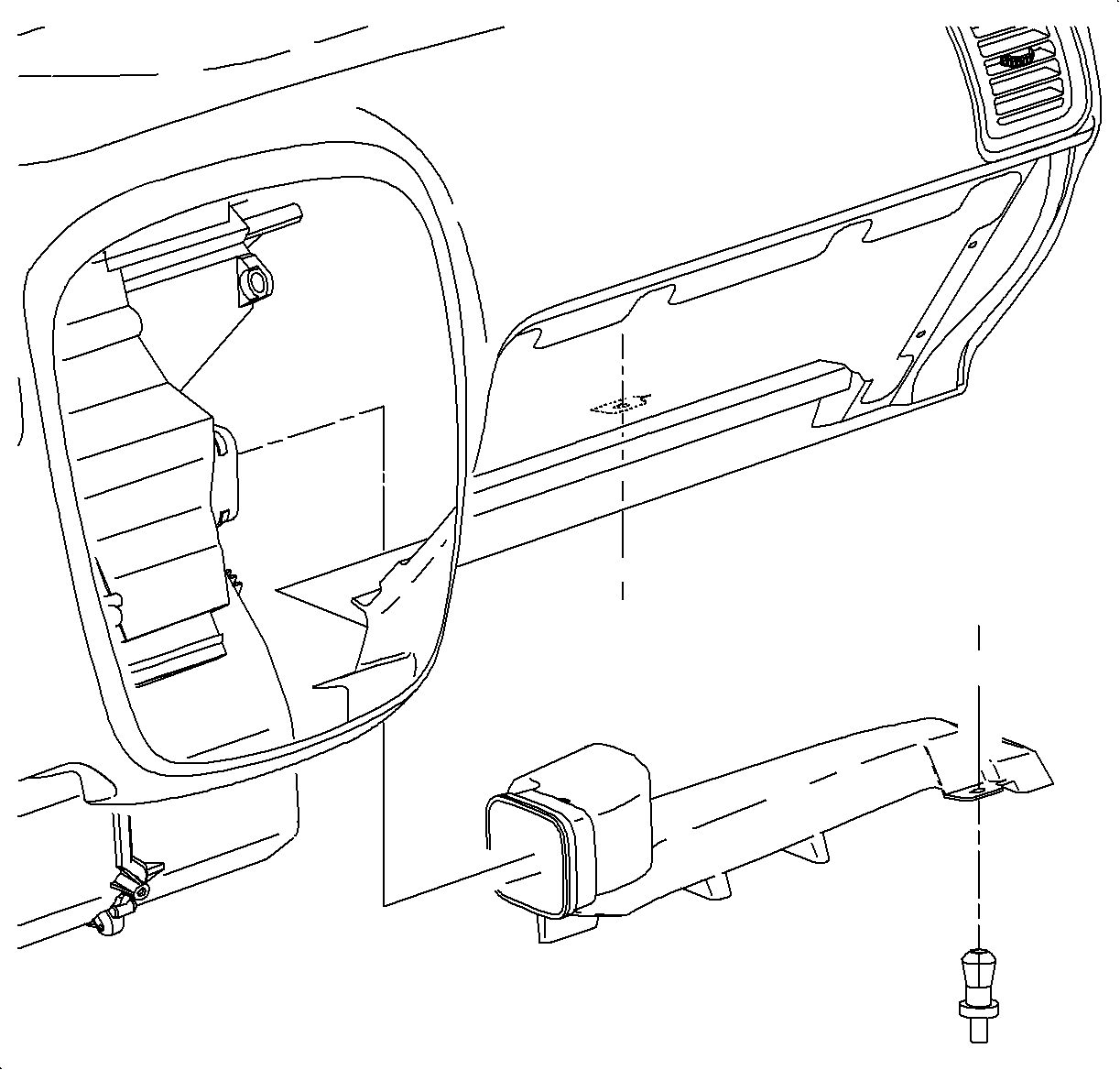
- Remove the right side heater duct assembly retainer and remove the duct.
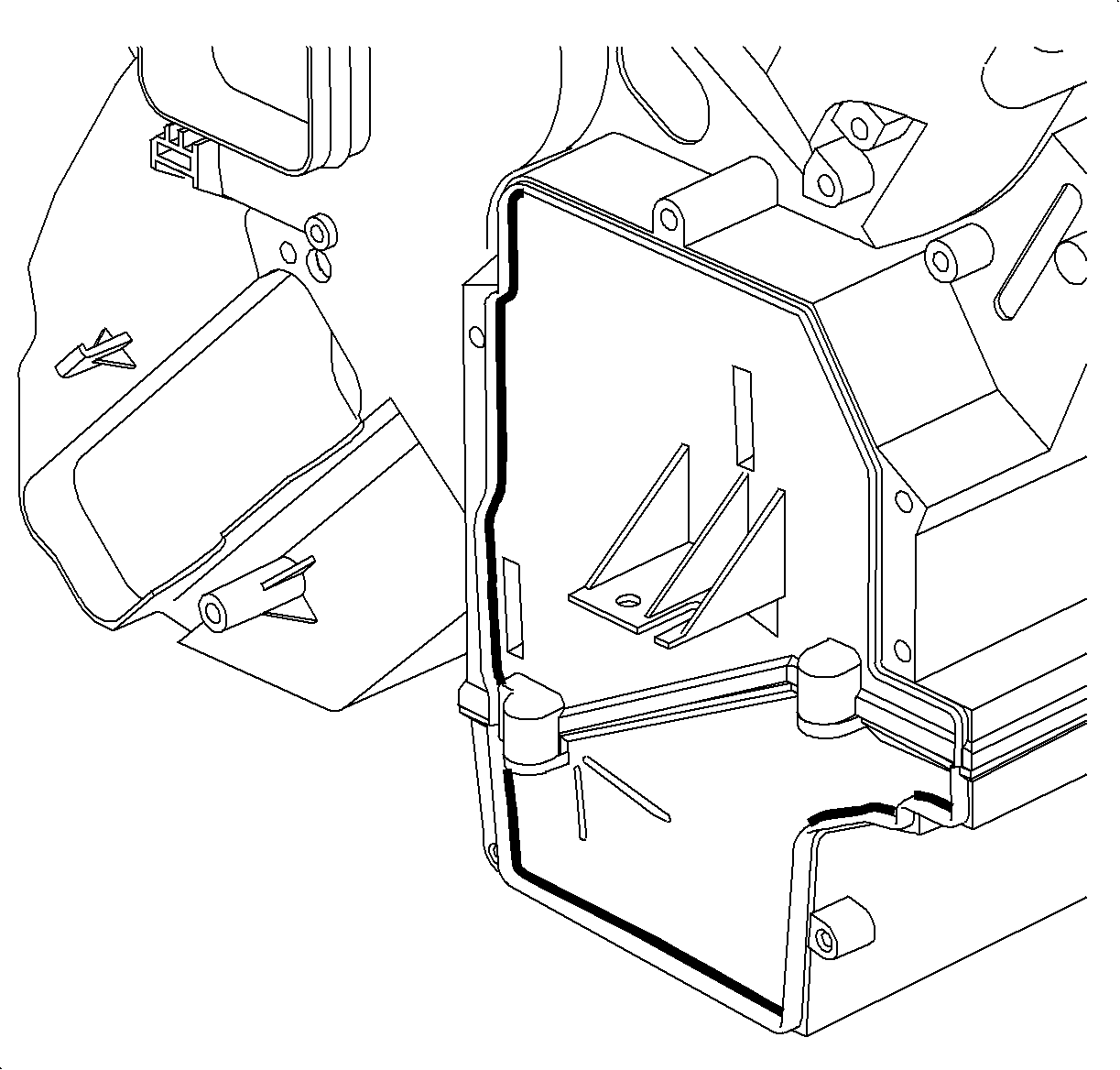
- Locate the evaporator access door location on the right side of the module.
The entire area inside the raised lip needs to be cut out.
Notice: To avoid cutting internal components, cut only inside raised bead area.
Important: Do not cut through or damage the raised bead,
this bead will be used as a sealing surface when completing the procedure.
- Using a sharp utility knife cut through the module wall, following the inside
of the raised bead as a guide. Several passes may be necessary to do this.
Notice: Use care when cleaning and removing debris around the evaporator as not to damage
the fins.
- Carefully clean out any moisture or debris that may be inside the module.
- Put on rubber gloves, safety glasses, and NIOSH approved acid gas/organic
vapor respirator.
- Using the cleaning gun, SA9216NE
siphon-type parts cleaning spray gun capable of delivering 2 ounces
per minute of liquid with shop air at 552-620 kPa (80-90 psi),
insert the siphon hose into the container of cooling coil coating. Take care to place
the bottle in a secure upright position to avoid spilling contents.
- Regulate shop air to 276-414 kPa (40-60 psi).
- Insert the nozzle tip of the spray gun so the spray pattern will be parallel
to the evaporator face.
- Apply the cooling coil coating using short bursts and rotating the nozzle
tip up and down. This will allow for an even distribution and to ensure full coverage
of the evaporator.
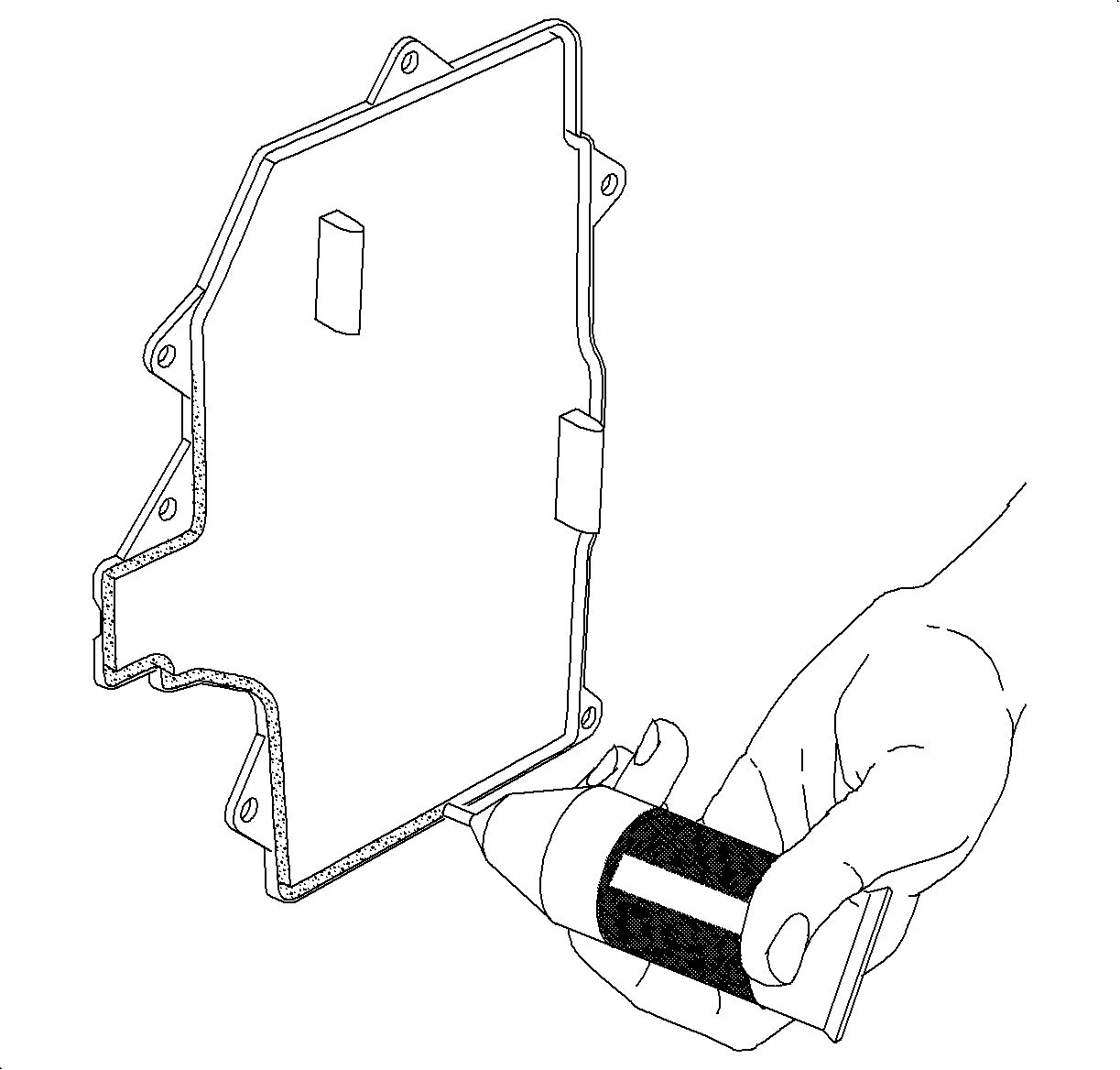
Notice: Proper sealing is important to prevent condensation from leaking into the passenger
compartment.
- Apply the provided sealant to the service door at the tongue and groove location
as shown.
Installation Procedure
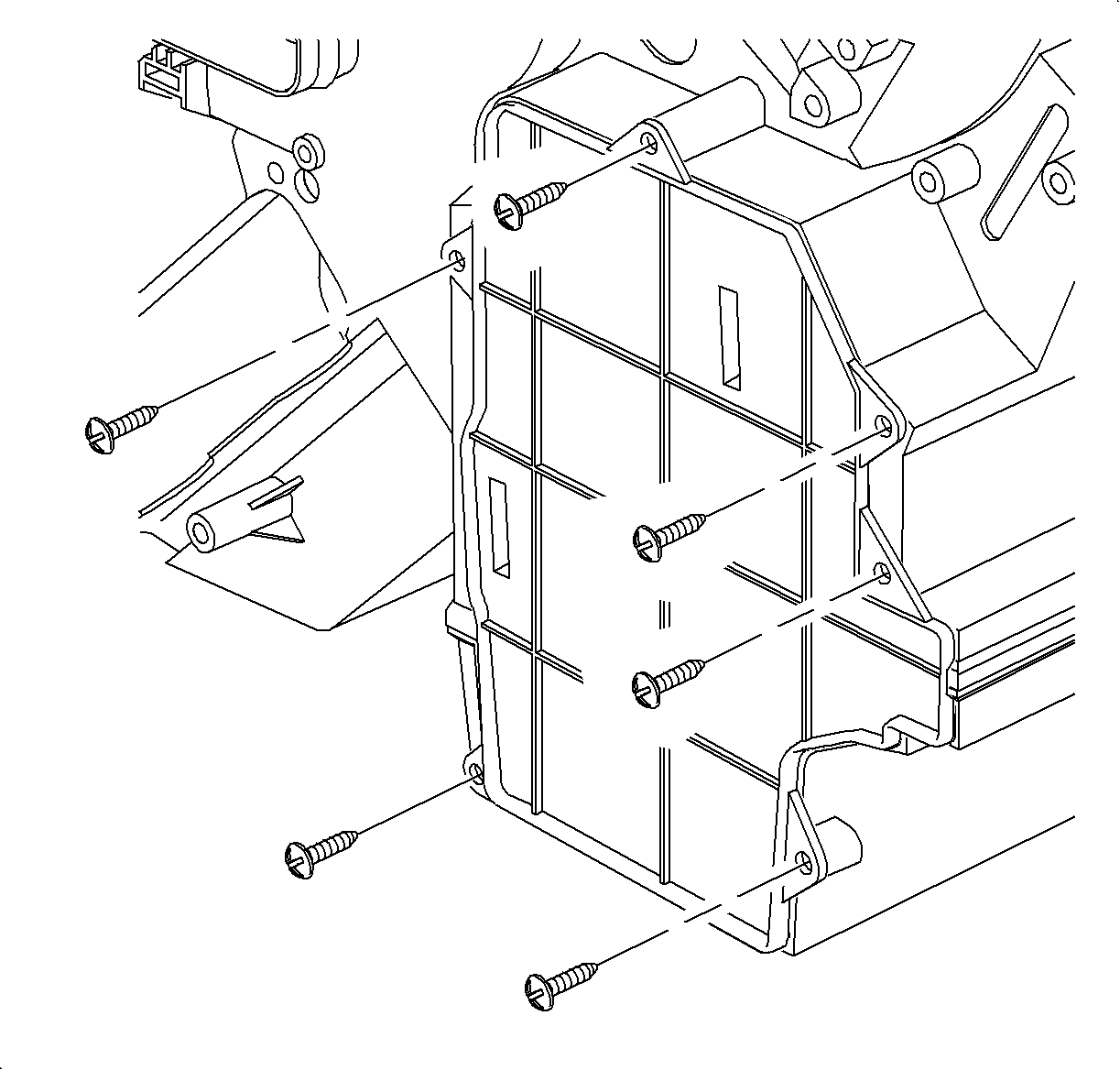
- Install the evaporator core service door (P/N 22679783) to module and
install the screws.
Tighten
Tighten the evaporator core service door-to-HVAC
module fasteners to 1.0 N·m (9 lb in).

- Install the right side heater duct assembly and the retainer.
- Install the insulator support to front-of-dash studs by sliding the insulator
forward.

- Install the right side I/P lower dash insulator and the retainers.

- Install the right side console extension.
- Allow the evaporator core to soak for 15 minutes.
Important: The 5 minute drying time is an important
step in curing the cooling coil coating to the evaporator.
- Dry the evaporator by performing the following steps.
| 7.1. | Adjust the temperature to full hot. |
| 7.2. | Adjust the mode to heater only. |
| 7.4. | Ensure the A/C button is OFF. |
| 7.5. | Open the windows 1/2 inch and close the doors. |
| 7.6. | Start the engine and allow the engine to reach operating temperature. |
| 7.7. | Allow the blower motor to operate on HI blower for 5 minutes once
the engine reaches operating temperature. |
- Properly dispose of the cooling coil coating runoff collected in the drain
pan into a sanitary drain.
- Remove the protective coverings from the interior of the vehicle.










